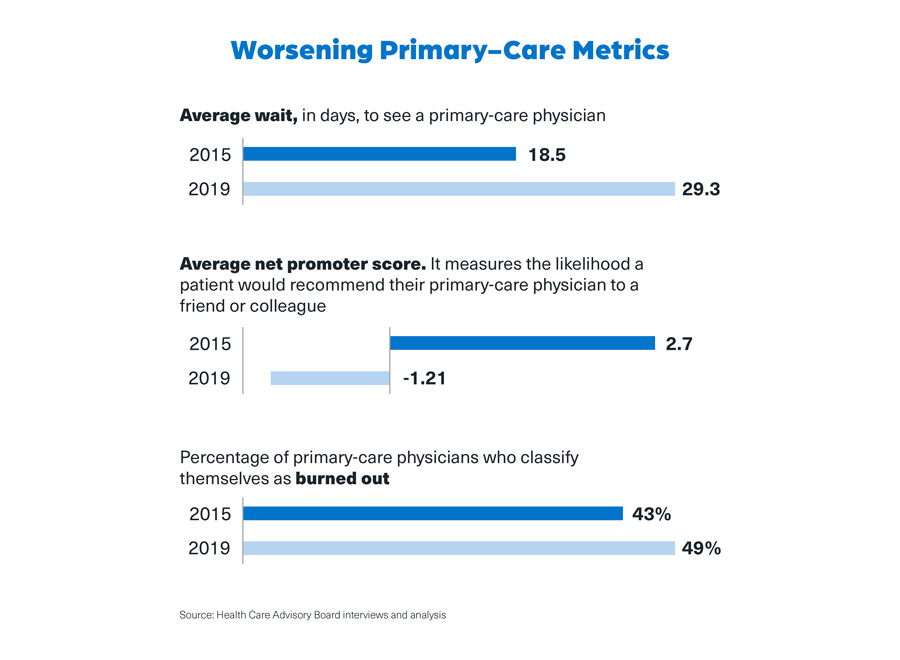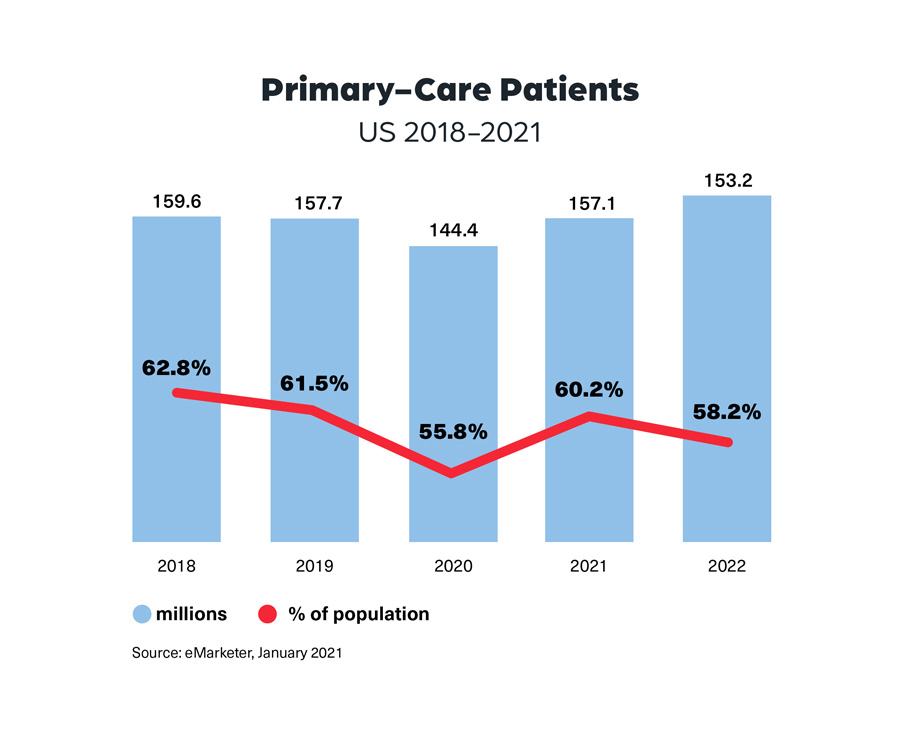Redefining Primary Care
How to Heal a Broken System With Innovative Alternatives

Estimated Read Time: 1 - 2 Minutes
The foundational role of the primary care provider in the healthcare landscape is undergoing significant changes, influencing consumer choices and reshaping the definition and delivery of healthcare services. Amidst a major upheaval, innovative entrants are capitalizing on the shortcomings of the existing primary care system, marked by worsening physician shortages and prolonged wait times, which have surged from 18.5 days in 2015 to nearly a month in 2019.
With the average net promoter scores dropping significantly from 2.7 to -1.21 during this period, it’s evident that consumers are dissatisfied. Primary care physicians, many of whom are over 56 years old and experiencing burnout (46% according to Statista), face challenges in becoming more consumer-centric and accessible.

Healthcare systems are racing to buy up practices to address the shortage, but the reluctance to disrupt established routines hampers significant change. While telehealth access and convenient technologies have expanded, providers must adapt to new methods and skills. Consequently, consumers are increasingly opting out of traditional primary care, with only 58.2% of US adults expected to have at least one in-person visit with a primary care physician in 2022, down from 62.8% in 2018.

Download our POV for insights into the emerging players, models, and innovations in the evolving realm of primary care.
Learn more about how WD can help innovate and scale your practice and then talk with our Health and Wellness practice leader, Dan Stanek, to get started.

 Dan Stanek
Dan Stanek


